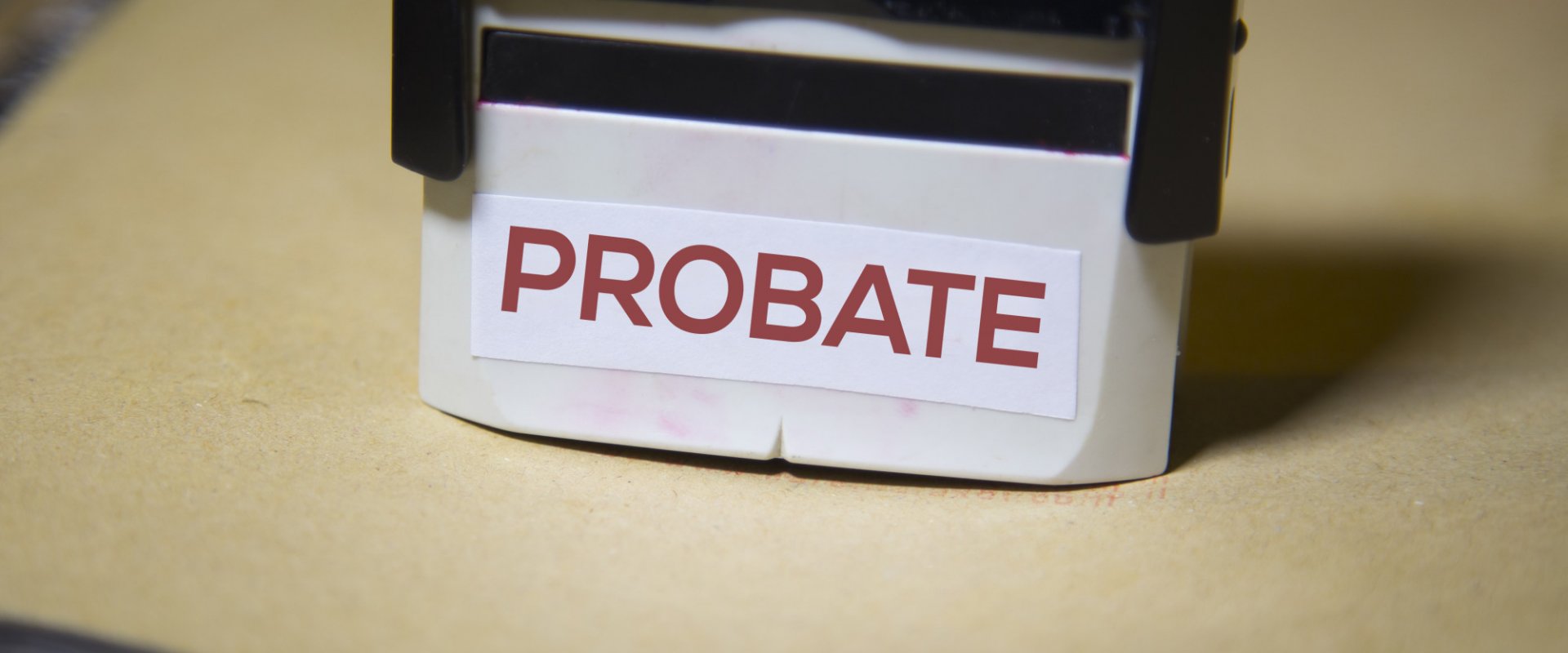
While in some states it’s required to let potential buyers know when someone has died in a house, most people don’t mind buying the home of a deceased person. In most cases, people don’t die inside the home, so it’s not stigmatized, but you might have to deal with a house in probate. If you’re the one trying to sell the house in probate, you’ll have to become the executor before you can do anything as far as getting rid of the home.
Before you start dealing with the home, you need to learn about probate and what it entails. There’s a lot of paperwork and preparation before selling a home. A house in probate is even more complicated.
What to do When There’s No Will
If someone leaves this life without a last will and testament, it’s hard to disperse according to what their wishes may have been. With no beneficiaries designated, everything falls into the hands of the court. While there are thankfully laws to prepare for this sort of thing, it’s not necessarily what families would like done with their loved ones’ assets.
The whole probate process is court-supervised so that assets are distributed fairly according to the law. The process is legally bound but it’s not final.
Individuals who have issues with the decisions of the court can challenge the will. Pending the use, the appropriate beneficiaries of the assets can then be decided via evidence presented.
Expect it to Take Months
While the grieving process can take a long time, the sobering legal process of dealing with an estate also takes a while. It can take six to nine months for a probate case to get through courts. This varies depending on the court but it can take years in some cases.
When there are disputes over the legality of the will itself, the whole process can drag on and one. There could be costs that come as a result and these court fees might end up on the executor of the will. Otherwise, they’re covered by the estate, which means that the value of the estate goes down the longer the probate process takes.
Most people try to get a living trust to ensure that probate can be avoided. They also expedite the probate process and lower the amount of time it takes to settle an estate.
Selling a home while it’s in probate is challenging, which is why it’s important to go through the proper steps. If you want to sell the property, you have to go through these eight steps.
1. The Will Reading
If someone creates a will, they usually leave it with an estate lawyer and keep a copy at home. In the digital era, there’s a better trail of breadcrumbs for finding a will than ever before. However, it may still take some legwork.
With proper planning, there’s no need to sell the probate property. Everything will be divided as planned. If there’s no will and no plan, then the property could have to be sold in order for anyone to get any inheritance from the property.
2. Gather Beneficiaries
Everyone who is a beneficiary should be listed in the will. After the readthrough, anyone not on the will who wants something from the estate will have to go to court.
The will should have a list of everyone including their mailing address, date of birth, and contact information. If you want to sell the property while it’s in probate, you’ll also need social security numbers, email addresses, and phone numbers.
Anyone who is deceased needs to be proven as dead. You’ll need a death certificate to show to the courts. It’s best to start preparing to get them now, as it’ll take time to process your requests.
3. Get a List of Assets
To sell property, you need o pay off any debts and make sure that everyone is getting what they’re owed. Someone who owns just 10% of a property can’t be the one to sell it.
Gather bank statements, brokerage statements, and anything regarding stocks and bonds. If there are corporate records and life insurance policy records, those will come in handy. Then you’ll need titles and deeds for any homes, buildings, or vehicles owned.
Make a detailed list of what they deceased owned and how it was titled legally. Make a note of the value of each one and date at which you came to this value. In most cases, an estate lawyer will go through the estate and assign values to things.
You may also need a few years worth of the decedent’s income tax returns and any filings they made.
4. List Out the Liabilities
Here is where you figure out anything that is owed to anyone by the deceased. These include lines of credit, mortgages, taxes, or liens against the property. They go as high as federal or state taxes and as low as utility or credit card bills.
It may be pertinent to start calling up anyone who is charging them any monthly fees to stop doing that. You have to cancel subscriptions, utilities, the cable company, and phones.
Get some copies of the death certificate of the deceased. This will have to be sent to many of the small subscriptions and utility companies who will otherwise try to make claims on the estate.
After you complete the list, it’s going to be in two major parts. One is for any liabilities that are still ongoing. Another is for those that are paid once probate is open.
5. Get Together With the Probate Attorney
Your estate lawyer is your best bet for dealing with this issue as promptly and as clearly as possible. They will charge you for every bit of work that you need to have done, so if you’ve done a good job in the previous steps, they’ll get right to work. If you haven’t they’ll start working on things that you could handle on your own and start draining value from the estate.
Beneficiaries and anyone named in the will should attend the meeting with the estate lawyer. If they can’t come, then there should at least be some kind of conference call or video call.
In cases where there is no will, then the only people who should attend are the legal heirs outlined by local laws. This requires a family tree to be submitted to your estate lawyer. Anyone who thinks they fall under those terms should attend.
Work closely with your estate lawyer in more complicated cases. They’ll have a lot of questions about who is who and what is what. Rather than stall the process, being available allows them to figure out what was owed and do the math based on what’s in the estate.
6. Open the Probate Estate
If you want to sell the property, you have to review documents that come from your estate lawyer. They’ll draft court documents that allow you to open the probate estate. This is the first real step to selling.
Everyone with a stake in the property will need to look at and sign these documents. This can take a while but is part of the legal process in just about every state. The details of the document vary.
In some states, you need to get a petition signed for probate and appoint someone as the agent. Then there are several orders that appoint an executor and admit the will into probate.
After a few more legal steps and a few letters drafted, the estate should be available.
7. Wait For the Legal Process
When all of the documents are ready, the probate judge then has to sign them. This can take a few days or even weeks. Once this is done, the decedent’s will is then in probate and the executor is in control.
The lawyer needs to get approval from the court in order to get a taxpayer ID. This ID number for the estate allows all filings to be registered under it. Everything in the estate is subject to being taxed depending on its value.
Some judges require bonds to be posted by the executor. Your estate lawyer can help to work with them to secure it at the start of probate. This puts executors on the hook for whatever happens with the estate.
Selling a House in Probate Can Take a While
If you’re selling a house in probate, you can’t expect a fast turnaround. Even if the home sells quickly, the resulting finances might have to be circulated by a probate attorney. The whole process could take a while, meaning that anyone hoping to walk away with an inheritance may have to wait.
However, the upside is that it’s possible to concurrently list a home while you’re getting it out of probate. it’s important to tell both your agent and potential buyers of the situation. If they have to move sooner than later, they may not want to invest their time and energy into a house in probate.
If you’re considering selling via a rent to own contract, check out our latest guide before you make the leap.


